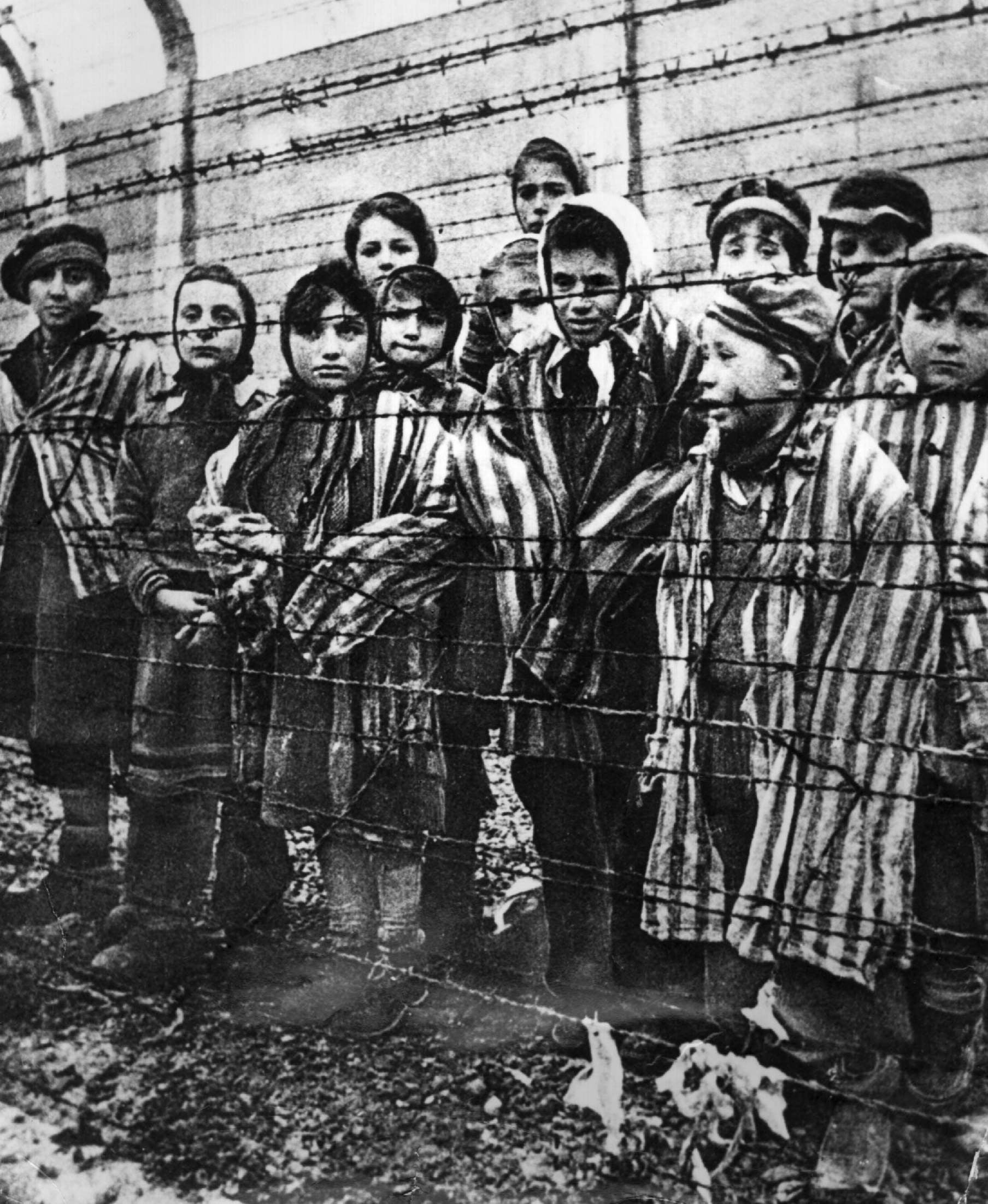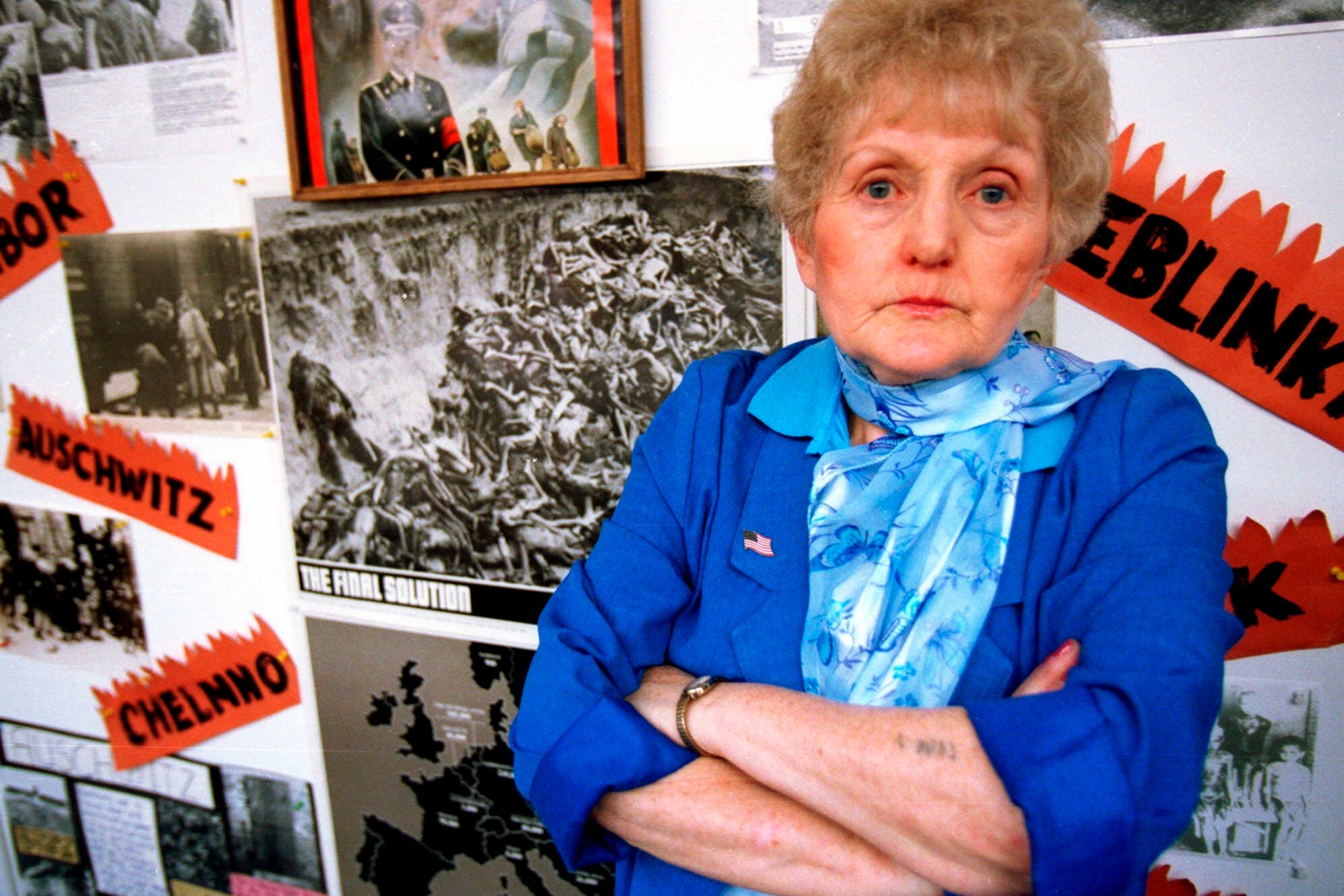
Eva Kor was 10 years old when she arrived at Auschwitz, the Nazi death camp in Poland where 1.1 million people, nearly all of them Jews, died in the Holocaust. On the selection platform, her mother held on tightly to Eva and her twin sister, Miriam, as their father and two older sisters disappeared into the masses.
“Twins?” an SS guard called out. “Twins?”
“Is that good”, Kor remembered her mother enquiring, if her daughters were twins? The guard said yes and the sisters were taken away. They would never see their mother or the rest of their family again.
Eva and Miriam were among 1,500 sets of twins subjected to medical experiments by the infamous Nazi doctor Josef Mengele. Fewer than 200 of those victims are thought to have lived.
Decades later, after making a new life for herself in Terre Haute, Indiana, Kor, who has died aged 85, helped draw international attention to the suffering the victims of the medical experiments had endured, as she preached a philosophy of forgiveness that she said unburdened her of her anger towards her persecutors.
She died at a hospital in Krakow, Poland, about an hour’s drive east of Auschwitz, where she was travelling with the Candles Holocaust Museum and Education Centre, which she founded in Terre Haute in 1995. She had visited Auschwitz roughly 30 times in recent decades with students, teachers, the news media and other groups.
Kor was one of the more visible members of the ever-dwindling group of survivors delivering first-hand testimony of the atrocities of the Holocaust. She drew admiration, as well as criticism from some fellow survivors, for her public expressions of forgiveness of the Nazis.
“For the life of me I will never understand why anger is preferable to a goodwill gesture,” she once said. “Nothing good ever comes from anger.”

She was born Eva Mozes in 1934, in Portz, a Romanian community that briefly became part of Hungary during the Second World War. She and her religiously observant family of farmers were the only Jews in the town.
In 1944 her family was placed in a ghetto and then deported to Auschwitz. The medical experiments conducted there and at other Nazi camps had three purposes, according to the US Holocaust Memorial Museum: to improve medical treatment for German troops, to test new medical procedures and drugs, and to confirm Nazi views of the supremacy of the Aryan race.
Victims were subjected to extreme altitudes and temperatures, injected with pathogens and sterilised. They endured bone-grafting procedures and injections in their eyes to change their eye colour. Many victims were permanently disfigured, sickened or weakened. Many more died.
“Everything in the world was done to me that would have killed me,” Kor said years later, “and here I am alive.”
She recalled being stripped of her clothes and tied down by her arms as she endured repeated examinations lasting as long as eight hours. From one arm, her tormentors took blood. “They wanted to know how much blood a person can lose and still live,” Kor said. In the other arm she received injections, sometimes five at a time.
Her sister, Miriam, sustained kidney damage so severe that her kidneys stopped growing; in 1987, Kor donated a kidney to her.
After their liberation from Auschwitz on 27 January 1945, the sisters stayed in an orphanage before making their way back to Romania, where they lived with an aunt. In 1950 they migrated to Israel, where Kor lived on a kibbutz and served in the Israeli army before marrying Michael Kor, a Latvian-born Holocaust survivor, in 1960 and settling that year in Terre Haute. She later became a real estate agent.

For years, Kor said she fought feelings of anger and bitterness. “If childhood is the foundation of a human being’s life,” she once said, “then what kind of foundation can we have if our memories are filled with the smell of burning flesh and chimneys belching the black smoke of our families?”
After the miniseries Holocaust aired on television in 1978, inviting some Americans to reckon for the first time with a history they might have preferred not to confront, Kor began speaking publicly about her experience in the camps.
In 1984, she and her sister founded Candles (Children of Auschwitz Nazi Deadly Lab Experiments Survivors) in an effort to locate other survivors of the medical experiments. To date, it has found 122 individual Mengele twins in 10 countries.
Kor returned to Auschwitz for the first time in 1985. A decade later, on the 50th anniversary of the liberation, she visited the camp with Hans Munch, a former Nazi doctor who agreed to offer a testimony of what had transpired at the camp. In an emotional ceremony, Kor announced she forgave the Nazis.
“It was a life-changing experience,” she later said. “I realised I had power over my life. I had the power to heal the pain imposed on me in Auschwitz by forgiving the people who imposed that pain.”
Critics argued it was not Kor’s place to offer such a pardon and that perhaps none was even possible. She emphasised that she spoke only for herself and that forgiveness was for her benefit, not for that of the Nazis.
Her museum in Terre Haute was destroyed by arson in 2003 but reopened in 2005 after receiving donations of almost $300,000 – a response, Kor noted, that brought even greater attention to her cause.
“What I tell everybody is that you – any victim, any person hurt – you have the same power,” she said. “You have the power to forgive. And what it does, forgiveness, has nothing to do with the perpetrator. It has everything to do with the way the victim feels.”
She is survived by her husband and two children. Her twin sister died in 1993.
Eva Kor, Auschwitz survivor, born 31 January 1934, died 4 July 2019
© Washington Post







